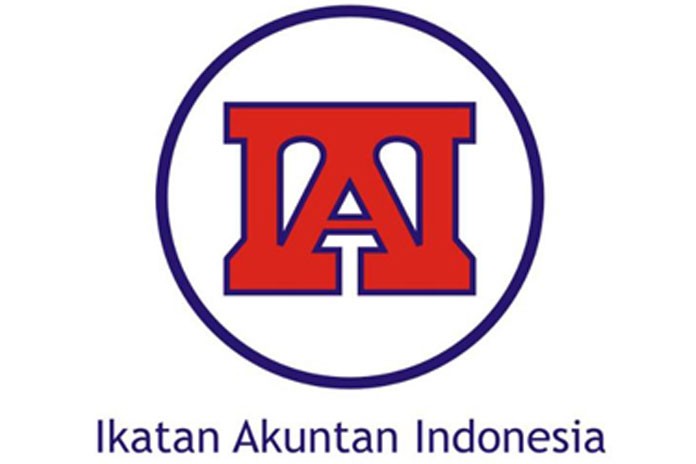MODEL MANFAAT AKUNTANSI DAN KEPUASAN PENGGUNA DALAM LINGKUNGAN IMPLEMENTASI SISTEM ERP
Abstract
Abstract
The purpose of this study is to provide empirical evidence about the models of benefits of accounting and user satisfaction within the ERP system implementation. The empirical analysis in this study is based on primary data obtained from a survey of 42 manufacturing companies with 64 manager respondents, or response rate of 42,67%. This research was conducted by the method of approach to structural equation modeling (SEM) with testing tools using partial least squares (PLS). Overall, these findings indicate ERP system implementation can be increase the benefits of accounting and ERP system implementation significantly affects of user satisfaction.
Keywords: benefits of accounting, ERP system implementation, user satisfaction
Abstrak
Tujuan dari penelitian ini adalah untuk memberikan bukti empiris tentang model manfaat akuntansi dan kepuasan pengguna dalam implementasi sistem ERP. Analisis empiris dalam penelitian ini didasarkan pada data primer yang diperoleh dari survei terhadap 42 perusahaan manufaktur dengan 64 responden manajer, atau tingkat respons 42,67%. Penelitian ini dilakukan dengan metode pendekatan structural equation modelling (SEM) dengan alat pengujian menggunakan partial least squares (PLS). Secara keseluruhan, temuan ini menunjukkan implementasi sistem ERP dapat meningkatkan manfaat akuntansi dan implementasi sistem ERP secara signifikan mempengaruhi kepuasan pengguna.
Kata kunci: manfaat akuntansi, implementasi sistem ERP, kepuasan pengguna
Full Text:
PDFReferences
Booth, P., Matolscy, Z., and Wieder ,B. 2000. “The Impacts Of Enterprise Resource Planning Systems On Accounting Practice: The Australian Experience”. Australia Accounting Review. Vol. 10, pp. 4-18.
Bradford, M and Florin, J. 2003. “Examining the role of innovation diffusion factors on the implementation success of enterprise resource planning system”. International Journal of Accounting Information System. Vol 4, pp. 205-225.
Brazel, J.F and Dang, L. 2008. “The Effect Of ERP System Implementations On The Management Of Earnings And Earnings Release Dates”. Journal Information System. Vol. 22, pp. 1-21.
Chang, H.H. 2006. “Technical And Management Perceptions Of Enterprise Information System Importance Implementation And Benefits”. Journal Information System. Vol. 16, pp. 63–92.
Colmenares, L. 2009. “Benefits of ERP Systems for Accounting and Financial Management”. Allied Academies International Conference: Proceedings of the Academy of Information and Management Sciences (AIMS) Vol. 13, pp. 3–7.
Dechow, N and Mouritsen, J. 2005. “Enterprise Resource Planning Systems, Management Controland Thequest For Integration”. Accounting Organization Society, Vol. 30, pp. 691-733.
DeLone, WH and McLean, ER. 2003. “The Delone And Mclean Model Of Information System Success: A Ten-Year Update”. Journal Management Information System. Vol. 19, pp. 9-30.
Dillard, J.F., Ruchala, L and Yuthas, K. 2005. “Enterprise Resource Planning Systems: A Physical Manifestation Of Administrative Evil”. International Journal of Accounting Information Systems. Vol 6(2), pp. 7–27.
Doll WJ, Torkzadeh G. 1988. “The Measurement Of End-User Computing Satisfaction”. Management Information System. Vol. 12, pp. 59–74.
Esteves,J. 2009. “A Benefits Realization Road-Map Framework For Erp Usage In Small And Medium-Sized Enterprises”. Journal Enterprise Information Management. Vol. 22, pp. 25–35.
Gattiker DF, Goodhue DL. 2004. “Understanding The Local-Level Costs And Benefits Of Erp Through Organizational Information Processing Theory”. Information Management. Vol. 41, pp. 431–43.
Ghozali, Imam. 2011. Structural Equation Modeling, Metode Alternatif dengan Partial Least Square (edisi ketiga). Badan Penerbit: Universitas Diponegoro, Semarang.
Granlund, Markus and Malmi, Teemu. 2002. “Moderate Impact Of Erps On Management Accounting: A Lag Or Permanent Outcome”. Management Accounting Research. Vol. 13, pp. 299–321.
Grabski SV, Leech SA, Schmidt PJ. 2011. “A Review Of Erp Research: A Future Agenda For Accounting Information Systems”. Journal Information System. Vol. 25, pp. 37–78.
HassabElnaby, H., Hwang, W. and Vonderembse, M. 2012. “The Impact of ERP Implementation on Organizational Capabilities and Firm Performance”. International Journal, pp 618-633.
Hunton, J., Lippincott, B., and Reck, J. 2003. “Enterprise resource planning systems: comparing firm performance of adopters and non-adopters”. International Journal of Accounting Information Systems. Vol. 4, pp.165-184.
Hyvonen T, Jarvinen J, Pellinen J. 2008. “A Virtual Integration-The Management Control System In A Multinational Enterprise”. Management Accounting Review. Vol. 19, pp. 45–61.
Ifinedo, P. 2007. “Interactions Between Organizational Size, Culture And Structure And Some It Factors In The Context Of Erp Success Assessment: An Exploratory Investigation”. Journal Computer and Information System. Vol. 47, pp. 28–44.
Ifinedo, P and Nahar, N. 2007. “ERP Systems Success: An Empirical Analysis Of How Two Organizational Stakeholder Groups Prioritize And Evaluate Relevant Measures”. Enterprise Information System. Vol. 1, pp. 25–48.
Jarvenpaa, M. 2007. “Making Business Partners: A Case Study On How Management Accounting Culture Was Changed”. European Accounting Review. Vol. 16, pp. 99-142.
Kallunki Juha-Pekka., Laitinen Erkki K., & Silvola, Hanna. 2011. “Impact Of Enterprise Resource Planning Systems On Management Control Systems And Firm Performance”. International Journal of Accounting Information Systems. Vol. 12, pp. 20-39.
Kanellou A, Spathis C. 2007. “ERP Systems And Accounting: Assessing The Benefits”. Proceedings of the 4th International Conference on Enterprise Systems, Accounting and Logistics – ICESAL. Vol. 9, pp. 217–28.
Kanellou, A and Spathis, C. 2013. “Accounting Benefits And Satisfaction In An ERP Environment”. International Journal of Accounting Information Systems. Vol. 14, pp. 209-234.
Kock, N. 2011. “Using WarpPLS in e-Collaboration Studies: Mediating Effects, Control and Second Order Variables, and Algorithm Choices”. International Journal of e-Collaboration, Vol. 7(3), pp. 1-13.
Longinidis P and Gotzamani K. 2009. “ERP User Satisfaction Issues: Insights From A Greek Industrial Giant”. Industrial Management Data System. Vol. 109, pp. 628–45.
Matolscy, Z.P., Booth, P and Wieder, B. 2005. “Economic Benefits Of Enterprise Resource Planning Systems: Some Empirical Evidence”. Accounting Finance. Vol. 45, pp. 439–56.
Newman, M and Westrup, C. 2005. “Making ERPs work: accountants and the introduction of ERP systems. European Journal of Information System. Vol. 14, pp. 58–72.
Nicolaou, A. 2004a. “Firm Performance Effects In Relation To The Implementation And Use Of Enterprise Resource Planning Systems”. Journal of Information Systems. Vol. 18, pp. 79-105.
Nicolaou, A and Bhattacharya, S. 2008. “Sustainability Of Erps Performance Outcomes: The Role Of Post-Implementation Review Quality”. International Journal of Accounting Information Systems. Vol. 9, pp. 43–60.
Olhager, J and Selldin, E. 2003. “Enterprise Resource Planning Survey Of Swedish Manufacturing Firms”. European Journal Operation Review. Vol. 146, pp. 65–73.
O'Leary, D. 2004. “Enterprise Resource Planning (Erp) Systems: An Empirical Analysis Of Benefits”. Journal Technology Accounting. Vol. 1, pp. 63–72.
Rom, A and Rohde, C. 2007. “Management Accounting And Integrated Information Systems: A Literature Review”. International Journal of Accounting Information Systems. Vol. 8, pp. 40-48.
Saatcioglu, O.Y. 2009. “What Determines User Satisfaction In Erp Projects: Benefits, Barriers Or Risks”. Journal Enterprise Information Management. Vol. 22(6), pp. 690–708.
Sayed, H.E. 2006. “ERPs and Accountants’ Expertise: The Construction Of Relevance”. Journal Enterprise Information Management. Vol. 19, pp. 83–96.
Scapens, R and Jazayeri, M. 2003. “ERP Systems And Management Accounting Change: Opportunities or Impacts? A Research Note”. European Accounting Review. Vol. 12, pp. 1–33.
Sekaran, U.
Shang, S, and Seddon P. 2002. “Assessing And Managing The Benefits Of Enterprise Systems: The Business Manager's Perspective”. Information System Journal. Vol. 12, pp. 71–99.
Somers TM, Nelson K and Karimi J. 2003. “Confirmatory Factor Analysis Of The
End-User Computing Satisfaction Instrument: Replication Within An Erp Domain”. Decision Science. Vol. 34. Pp. 595–621.
Spathis, C and Constantinides, S. 2004. “Enterprise Resource Planning Systems’ Impact On Accounting Processes”. Bussiness Process Management Journal. Vol. 10, pp. 34–47.
Spathis, C. 2006. “Enterprise Systems Implementation and Accounting Benefits”. Journal Enterprise Information Management. Vol. 19, pp. 67–82.
Stefanou, J.C. 2002. Accounting Information Systems (AIS) Development/Acquisition Approaches By Greek SME. Paper Presented at the EUROPEAN Conference on Accounting Information Systems (ECAIS).
Sutton, S.G. 2006. “Enterprise Systems And The Re-Shaping Of Accounting Systems: A Call Of Research”. International Journal of Accounting Information Systems. Vol. 7, pp. 1–6.
Velcu, O. 2007. “Eploring The Effect Of ERP System On Organizational Performance”. Industrial Management & Data Systems. Vol. 107, pp. 1316-1334.
Wu, J.H and Wang, Y.M. 2007. “Measuring Erp Success: The Key-Users’ Viewpoint Of The Erp To Produce A Viable Is In The Organization”. Computing Human Behavior. Vol. 23. Pp. 1582–96.
Zviran, M. Pliskin, N and Levin, R. 2005. “Measuring User Satisfaction And Perceived Usefulness In The ERP Context. Journal Computer and Information System. Vol. 45, pp. 43–52.
DOI: http://dx.doi.org/10.35448/jrat.v9i2.4311
Refbacks
- There are currently no refbacks.
pISSN 1979-682X eISSN 2528-7443
Jurnal Riset Akuntasi Terpadu (JRAT) is licensed under a Creative Commons Attribution 4.0 International License







